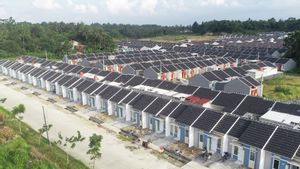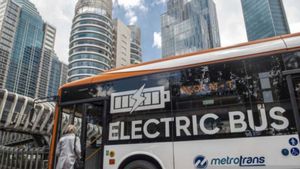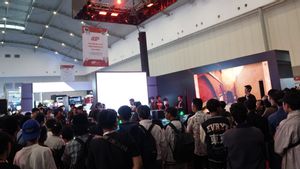JAKARTA - The government's move to fix supply chains as a strategy to reduce inflation rate is the right step. So that Indonesia managed to control inflation at the level of 5.9 percent. As stated by the Executive Director of the Center of Reform on Economics Indonesia (Core) Mohammad Faisal. He said the supply factor had a major effect on increasing the inflation rate compared to the demand factor, so it was necessary to strengthen the collaboration of the Central Inflation Control Team (TPIP) and the Regional Inflation Control Team (TPID). "If the government then makes efforts to reduce the problem from supply side by controlling inflation nationally and the area is indeed one that must be done by the government," he said, in Jakarta, Thursday, October 20. Faisal assessed that the government's strategy was quite able to contain inflation rates. This can be seen in the reading of data in September. Indeed, there was an increase in inflation of 1.17 percent (mtm), but there was actually a decrease in core inflation and deflation in volatile food groups.
This means that inflation drive is the impact of the subsidized fuel oil (BBM) price increase. "So the inflation drive factor is purely because indeed the first round effects of subsidized fuel price increases are why it is affected in transportation inflation, because of its fuel," he said. According to him, deflation in September is also unusual, because of the usual increase in subsidized fuel will be followed by food price inflation. Faisal also suspects that it is also affected by the demand factor which is not too strong. "In fact, usually when there is an increase in subsidized fuel prices followed by rising food, yes, it is usually. But in September there was actually deflation," he explained. Therefore, Faisal suggested that the government should look at the level of effectiveness of inflation reduction strategies in the next few months. "Also, it must also be seen whether it has been effective or not, this is still in September, so we will see the first round effect," he concluded. Meanwhile, INDEF Economist Eisha Rachbini said, the problem of domestic supply chains mentioned by the Minister of Finance as one of the culprits for rising inflation. However, he said, it could be resolved with technology. "The use of technology can help, for example, real time data for supply, production data, up to industrial demand data needed, also industries must be synchronized, needed good inter-authority coordination," said Eisha, Friday, October 21. Domestic supply chains, continued Eisha, domestic supply chains need to be addressed rang from producers, farmers, to consumers. "The problem of supply chains is mainly food commodities, such as for example, when supply is again high, can be stored where the supply is better, when supply is less, for example due to bad weather, can be anticipated," added Eisha.
Previously, the Minister of Finance (Menkeu) Sri Mulyani Indrawati also mentioned that the root cause of inflation was the supply chain. The Ministry of Finance also used fiscal instruments to support inflation control by providing incentives to each region whose inflation is lower than national inflation. Meanwhile, Coordinating Minister (Menko) for the Economy Airlangga Hartarto said that sufficient control of Indonesian inflation is an important step for strengthening the national economy. "Currently inflation is at the level of 5.9 percent. In efforts to control inflation, the government has implemented a number of measures such as encouraging collaboration between TPIP and TPID through the National Movement for Food Inflation Control (GNPIP)," said the Head of Golkar. In addition, Airlangga said that the government is also optimizing the Physical Special Allocation Fund (DAK) for thematic food security and utilization of 2 percent of the General Transfer Fund (DTU) to help the transportation sector and additional social protection. The government has issued various assistance such as Direct Cash Assistance (BLT) amounting to Rp12.4 trillion and wage subsidy assistance of Rp9.6 trillion for 16 million workers. With this assistance, it is hoped that it can provide a cushion for economic growth until the end of the year so that it is still at around 5.2 percent and next year it will remain above 5 percent.
The English, Chinese, Japanese, Arabic, and French versions are automatically generated by the AI. So there may still be inaccuracies in translating, please always see Indonesian as our main language. (system supported by DigitalSiber.id)













